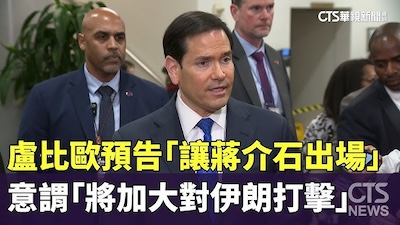Their Russia-like anti-democracy operation was unveiled during Taiwan’s mid-term elections last year, when Beijing used every tool at its disposal to stir confusion among voters and ruin the credibility of candidates from the Democratic Progressive Party

Unless you’ve been living under a rock for the past several years, you’re probably aware that Russia attempted to influence the US presidential election of 2016 through a large-scale social-media and hacking campaign (how much of an effect they actually had on the results is another matter). But did you know that right now, China is doing the same thing in Taiwan ahead of its 2020 presidential election?
Their Russia-like anti-democracy operation was unveiled during Taiwan’s mid-term elections last year, when Beijing used every tool at its disposal to stir confusion among voters and ruin the credibility of candidates from the Democratic Progressive Party (DPP; who are against closer ties with the mainland and opposed to unification with it) and their incumbent president, Tsai Ing-wen. This was accomplished through the dissemination of false news stories and other disinformation on social media outlets like Facebook and Twitter, online chat groups, messaging apps such as Line, and the online bulletin board known as PTT.
The Chinese Communist Party (CCP) has a massive force of online trolls and commenters – dubbed the ‘50 Cent Army’ – that’s constantly online pushing Beijing’s agenda to innocent users. Examples of fake news stories include one about how some of Taiwan’s last remaining allies were poised to abandon it, and another that claimed China had rescued dozens Taiwanese people stranded in Japan during Typhoon Jebi after their own government failed them – an untrue story that apparently led a Taiwanese diplomat in Osaka to commit suicide. And besides its widespread disinformation campaign, the Chinese government may also have used back-door channels to fund Taiwanese candidates friendly to its cause in 2018, numerous cases of which are now being investigated on the island.
Actually, the election-meddling activities of Russia and China are eerily similar, with some contending Beijing copied its game plan from Moscow. For example, in the 2016 US election, when Russia infiltrated the social media sphere with fake user accounts and bots to stoke division and spread extremist ideology, the overall goal was to get their preferred candidate (Donald Trump) elected, as Hillary Clinton had repeatedly taken a hardline stance against Putin’s regime in the past. The results? Trump squeaked out a narrow victory that was no doubt affected – at least in part – by both the online discord sown by Moscow and the publication of Democratic emails that were reportedly hacked by Russian agents.
Fast-forward to last year in Taiwan, when the Chinese undertook a similar campaign of social-media cyberwarfare to get voters to choose candidates from the party it wanted to see in office (the Kuomintang, who have a more China-friendly stance than the DPP). As with Russia in 2016, China succeeded – at least based on the outcome of the election. The DPP’s share of 22 cities and counties fell from 18 to 6, and they lost long-held bastions of support like the southern city of Kaohsiung. And while it’s impossible to know just how many voters were swayed by outside influences – as opposed to internal issues – it should give everyone in the free world pause that history has so quickly, and disturbingly, repeated itself.
Looking towards the 2020 Taiwan presidential election, Tsai’s administration expects to see more of the same – fake news and other types of disinformation being pushed through various online channels from beyond its borders. As the president herself said, “fake news warfare from the outside poses challenges to Taiwan, just as Europe is challenged by terrorism.” In response, her government announced in March that it would block the popular online streaming services of the Chinese companies Baidu and Tencent due to national security concerns. In addition, a movement has recently been sweeping Taiwan’s university campuses calling for a boycott of TV stations with an alleged pro-China bias in their news reporting.
Given what the Russians were able to accomplish in the US, the scary part about all of this is that China is bigger, badder and has vastly more resources at its disposal than Moscow did. Some analysts suggest Taiwan’s midterm elections may have just been a test-run of Beijing’s election-interference capabilities, with greater targets on the horizon … including the upcoming US presidential election.
In fact, last December, a group of US senators declared: “CCP’s attempts to erode democratic processes and norms around the world threaten US partnerships and prosperity. Allegations such as those surrounding Taiwan’s recent elections must, therefore, be pursued with seriousness and urgency.” While we applaud these senators for their statement, we can only hope the US and other freedom-loving nations step in sooner rather than later to combat such willful interference in fair elections by engaging in some cyberwarfare of their own in Taiwan’s defense. Essentially, if the forces of good are to prevail in the global propaganda war, it will be necessary for all of us to band together against democracy’s common enemies, because – as the ancient Chinese proverb says – “Tyranny is fiercer than a tiger” (苛政猛于虎).
Author / Cathy Lin

![[轉] 中東軍事衝突凸顯台灣應快速提高能源自主](https://newcongress.tw/wp-content/uploads/2026/03/中東軍事衝突凸顯台灣應快速提高能源自主.png)

